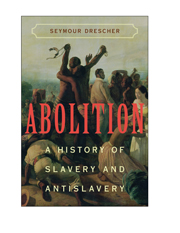Book contents
- Frontmatter
- Contents
- Preface
- PART ONE EXTENSION
- PART TWO CRISIS
- 4 Border Skirmishes
- 5 Age of the American Revolution, 1770s–1820s
- 6 Franco-American Revolutions, 1780s–1820s
- 7 Latin American Revolutions, 1810s–1820s
- 8 Abolitionism without Revolution: Great Britain, 1770s–1820s
- PART THREE CONTRACTION
- PART FOUR REVERSION
- Index
- References
6 - Franco-American Revolutions, 1780s–1820s
Published online by Cambridge University Press: 04 August 2010
- Frontmatter
- Contents
- Preface
- PART ONE EXTENSION
- PART TWO CRISIS
- 4 Border Skirmishes
- 5 Age of the American Revolution, 1770s–1820s
- 6 Franco-American Revolutions, 1780s–1820s
- 7 Latin American Revolutions, 1810s–1820s
- 8 Abolitionism without Revolution: Great Britain, 1770s–1820s
- PART THREE CONTRACTION
- PART FOUR REVERSION
- Index
- References
Summary
Interrevolution, 1783–1791
Neither the American Declaration of Independence nor the achievement of independence itself caused any change of course among the slavers, colonists, or rulers of Europe. Not since the mid-seventeenth century had there been such a flurry of new projects designed to gain entry into the booming Atlantic system. The institution of slavery continued to enhance the wealth of those who controlled it and the affluence of those who purchased or sold its output. Given the comparatively high productivity of slave labor in New World agriculture, slave and slaving systems remained competitive and expansive.
All of the major and many of the minor Atlantic players assumed that slavery was, or could be, a significant component of their wealth and power. The shared impulse for encouraging the expansion of slavery was not confined only to those nations and merchants that were still the century's biggest players – the British, the French, and the Portuguese. The attractiveness of the plantation complex was evidenced by a surge of newcomers. The seventeenth-century opening of the North Atlantic slave trade had encouraged a rush of small states from the Baltic: Denmark, Sweden, Brandenburg, Hanau, and Courland. A second rush got underway in the 1780s. Ostend merchants in the Austrian Netherlands (now Belgium) took advantage of the sharp wartime drop in the British and French slave trades.
- Type
- Chapter
- Information
- AbolitionA History of Slavery and Antislavery, pp. 146 - 180Publisher: Cambridge University PressPrint publication year: 2009
References
- 1
- Cited by



